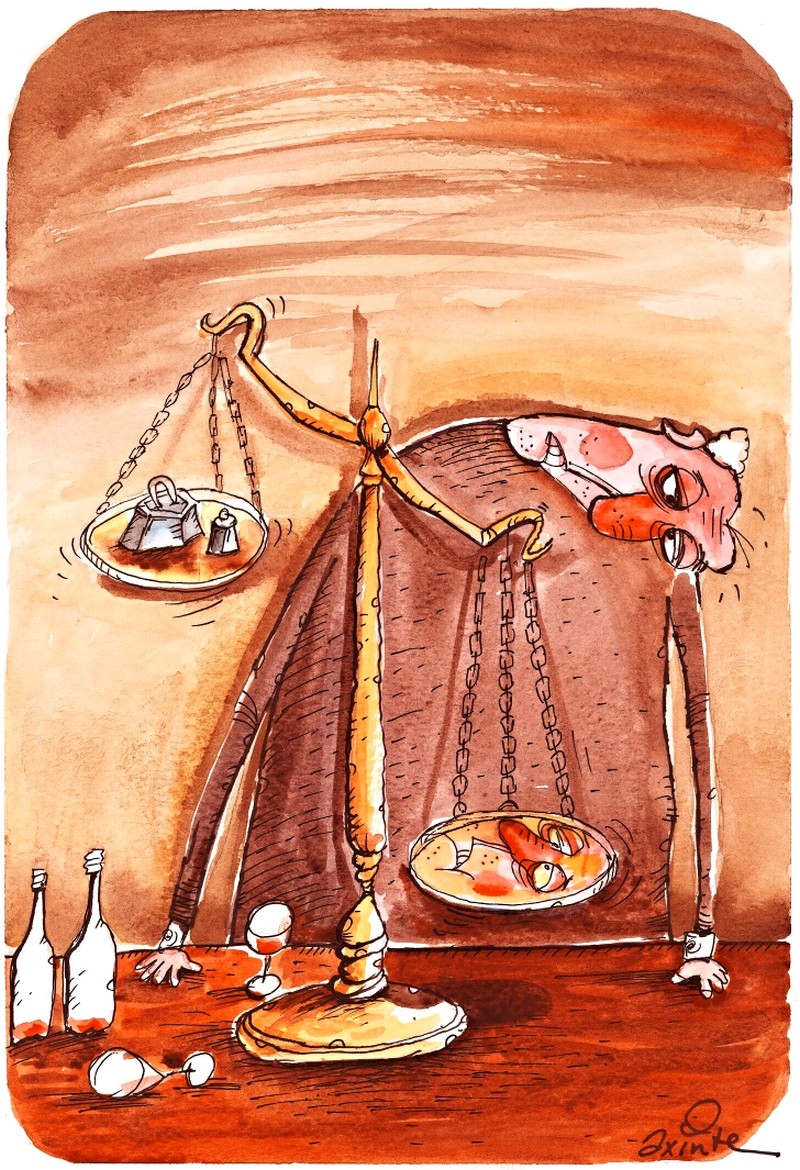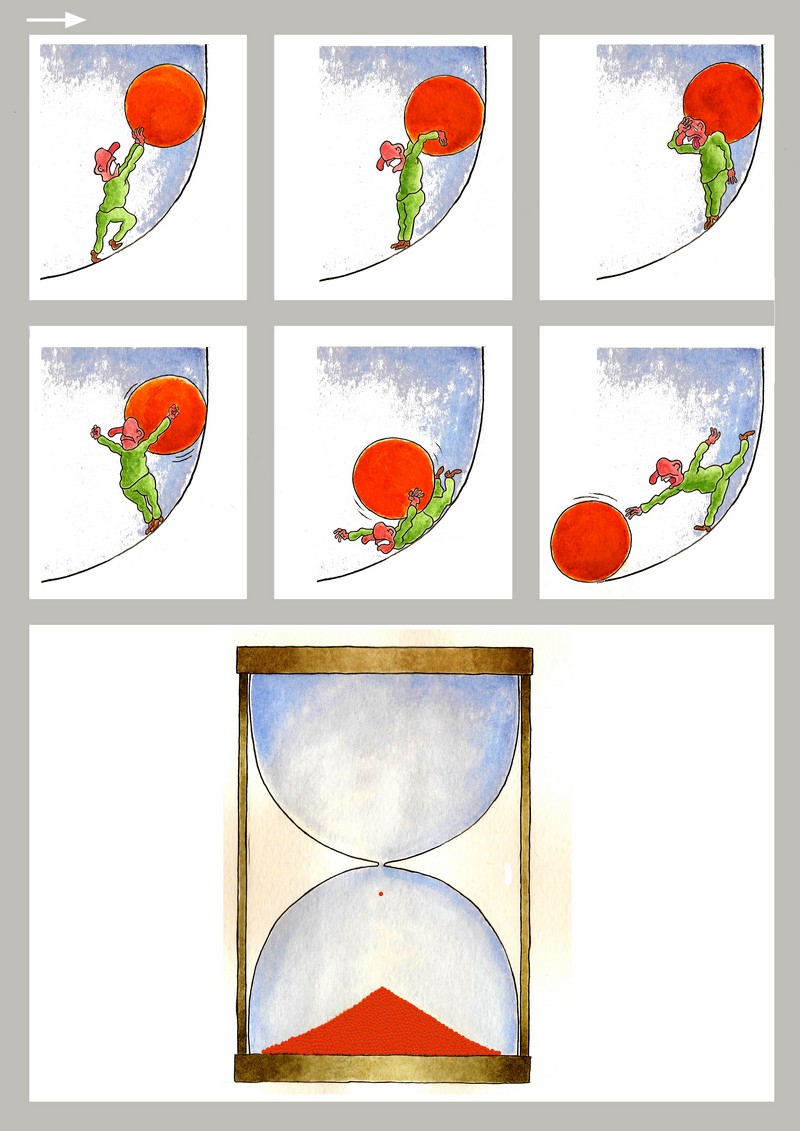ولادیمیر ولادیمیروویچ پوتین

در شرایط فعلی می توان گفت كه كریمه و جریانات حواشی آن پوتین و همدستانش را به شرایط سختی خواهد كشاند. مهم نیست كه چه كسی برنده این دور جدید نمایش قدرت باشد، پوتین یا اتحادیه اروپا.
نكته مهم تمایل پوتین برای استفاده از همه پتانسیل های سیاسی و نظامی خود برای عرض اندام است. چه كسی می تواند بگوید كه اوج و ابهت اتحاد جماهیر شوروی مرده است؟
البته كه كشور اتحاد جماهیر شوروی با بهره گیری از منابع و امكانات بی پایان جمهوری های غنی خود و نیز نیروی انسانی كمونیستی كه به جز آرمان های لنین به چیز دیگری نمی اندیشیدند. یا لااقل قبل از فرو پاشی ابرقدرت كسی از پوشالی بودن آن خبر نداشت ، برای خودش امپراتوری بود.
جناب آقای پوتین اینك در راهی قدم گذاشته اند كه پایان آن برای خود پوتین هم گنگ است.
تداوم حضور نیروهای روسی در كریمه شاید در كوتاه مدت زهر چشمی برای رهبران غرب گرا و ناسیونالیسم جمهوری های سابق روسیه و البته قوت و امیدی برای برخی از كشورهای ظاهرا دوست و البته تحت سلطه روسیه باشد ، ولی اثرات این تهدید غیر مستقیم این كشورها راه را برای گسترش ایدیولوژی غربی و به دنبال آن سیطره غرب بر كشورهای شرقی و بخصوص آسیای میانه و قفقاز باز می كند. به طوری كه روسیه و در راس آن هیات حاكمه آن در فضای باز و تیر رس اتحادیه اروپا و در مجموع غربی ها قرار می گیرند.
پوتین نا خواسته كشورهای دوست خود را به سكوت كشانده است. هیچ یك از دوستان این كشور از جمله چین ، ... ، سوریه ، كره جنوبی رسما از این اقدام روسیه در كریمه حمایت نكرده اند. دلیل آن هم تناقض دلایل اشغال كریمه با منافع ملی و حاكمیتی آن كشورهاست.
اگر مردم روس زبان كریمه اجازه تعیین سرنوشت را دارند ، چرا این امر در مورد چچنی های مسلمان و یا تاتار های كرمیه و ... نیز صدق نكند.
نكته مهم تمایل پوتین برای استفاده از همه پتانسیل های سیاسی و نظامی خود برای عرض اندام است. چه كسی می تواند بگوید كه اوج و ابهت اتحاد جماهیر شوروی مرده است؟
البته كه كشور اتحاد جماهیر شوروی با بهره گیری از منابع و امكانات بی پایان جمهوری های غنی خود و نیز نیروی انسانی كمونیستی كه به جز آرمان های لنین به چیز دیگری نمی اندیشیدند. یا لااقل قبل از فرو پاشی ابرقدرت كسی از پوشالی بودن آن خبر نداشت ، برای خودش امپراتوری بود.
جناب آقای پوتین اینك در راهی قدم گذاشته اند كه پایان آن برای خود پوتین هم گنگ است.
تداوم حضور نیروهای روسی در كریمه شاید در كوتاه مدت زهر چشمی برای رهبران غرب گرا و ناسیونالیسم جمهوری های سابق روسیه و البته قوت و امیدی برای برخی از كشورهای ظاهرا دوست و البته تحت سلطه روسیه باشد ، ولی اثرات این تهدید غیر مستقیم این كشورها راه را برای گسترش ایدیولوژی غربی و به دنبال آن سیطره غرب بر كشورهای شرقی و بخصوص آسیای میانه و قفقاز باز می كند. به طوری كه روسیه و در راس آن هیات حاكمه آن در فضای باز و تیر رس اتحادیه اروپا و در مجموع غربی ها قرار می گیرند.
پوتین نا خواسته كشورهای دوست خود را به سكوت كشانده است. هیچ یك از دوستان این كشور از جمله چین ، ... ، سوریه ، كره جنوبی رسما از این اقدام روسیه در كریمه حمایت نكرده اند. دلیل آن هم تناقض دلایل اشغال كریمه با منافع ملی و حاكمیتی آن كشورهاست.
اگر مردم روس زبان كریمه اجازه تعیین سرنوشت را دارند ، چرا این امر در مورد چچنی های مسلمان و یا تاتار های كرمیه و ... نیز صدق نكند.
 +0 به یه ن
+0 به یه ن
یاییلیب : دوشنبه 11 فروردین 1393 | یازار : تانیش | بؤلوم : یئنی بیر باخیش/New Viewpoint | 0 باخیشلار

I. Apart from the fact that the existing works on Islamic Jurisprudence in the English language do not offer an exclusive treatment of usul al-fiqh, there is also a need to pay greater attention to the source materials, namely the Qur'an and sunnah, in the study of this science. In the English works, the doctrines of usul al-fiqh are often discussed in relative isolation from the authorities in which they are founded. Furthermore, these works tend to exhibit a certain difference of style and perspective when they are compared to the Arabic works on the subject. The usul al-fiqh as a whole and all of the various other branches of the Shari’ah bear testimony to the recognition, as the most authoritative influence and source, of divine revelation (wahy) over and above that of rationality and man-made legislation. This aspect of Islamic law is generally acknowledged, and yet the relevance of wahy to the detailed formulations of Islamic law is not highlighted in the English works in the same way as one would expect to find in the works of Arabic origin. I have therefore made an attempt to convey not only the contents of usul al-fiqh as I found them in Arabic sources but also the tone and spirit of the source materials which I have consulted. I have given frequent illustrations from the Qur’an, the Sunnah and the well-recognised works of authority to substantiate the theoretical exposition of ideas and doctrines. The works of the madhahib,
in other words, are treated in conjunction with the authority in which they
are founded.
II. The idea to write this book occurred to me in early 1980 when I was teaching this subject to postgraduate students at the Institute of Islamic Studies at McGill University in Montreal. But it was only after 1985 when I started a teaching post at the International Islamic University, Selangor,
Malaysia, that I was able to write the work I had intended. I was prompted to this decision primarily by the shortage of English textbooks on Islamic jurisprudence for students who seek to acquire an intermediate to advanced level of proficiency in this subject. Works that are currently available in English on Islamic law and jurisprudence are on the whole generic in that they tend to treat a whole range of topics both on usul al-fiqh and the various branches of fiqh (i.e. furu 'al-fiqh ), often within the...
Download the file فایلی ائندیر


منبع:cartoongallery.eu
 +0 به یه ن
+0 به یه ن
یاییلیب : چهارشنبه 14 اسفند 1392 | یازار : تانیش | بؤلوم : یئنی بیر باخیش/New Viewpoint | 0 باخیشلار
One day, an ox was passing by the pond. The proud frog looked at the ox and asked his friends, ‘Am I as big as the ox?” His friends, who were tired of hearing the proud frog boast about himself every day said that he wasn’t as big as the ox.
The proud frog was furious and wanted to prove his friends wrong. He puffed himself up to become bigger and bigger to show his friends that he could be as big as the ox. He huffed and he puffed and all of a sudden, he burst and that was the end of the vain frog!